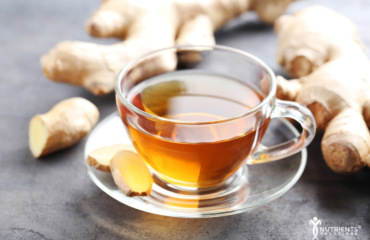Wellness Demystified: We Can Help You Discover Optimum Health
8 Powerful and Protective Benefits of Alpha-Lipoic Acid

Alpha-lipoic acid (ALA) is an antioxidant, which means it counters the deterioration of cells that result from oxidative stress. In its natural form, this antioxidant is called lipoic acid and is found in many plant foods. However, it can also be taken as a supplement, in which case it’s called alpha-lipoic acid. Medical studies have found several therapeutic benefits of ALA supplementation, including the prevention and management of diseases like Alzheimer’s, heart disease, glaucoma, osteoporosis and diabetes. It also promotes weight loss and fights the effects of aging.
1. Neutralizes Free Radicals
Because ALA is an antioxidant, it inhibits oxidation in the body, known as oxidative stress or free radical damage. Antioxidants play a protective role in every cell, since free radicals are unstable molecules that cause cellular and DNA damage. Free radical damage accelerates the effects of aging and can lead to degenerative diseases.
By reducing oxidative stress, ALA may also help you recover quicker from workouts. Oxidative stress contributes to muscle soreness after exercise, and antioxidants like ALA lessen this effect.
2. Increases Cellular Energy
The mitochondria is the energy-producing element of every cell in your body. Whereas oxidative stress damages mitochondria [1] and reduces cellular energy, ALA protects the mitochondria and preserves its ability to give you high levels of energy throughout the day. ALA also improves the effectiveness of B vitamins, which play crucial roles in converting food to fuel.
3. Fights Diabetes and Increases Insulin Sensitivity
ALA supplements have shown to lower blood sugar and boost insulin sensitivity, which reduces your risk of diabetes. After extensive research, ALA was even determined to be an effective treatment for diabetic distal sensory-motor neuropathy [2], which affects about 50 percent of people with diabetes. People with diabetes with this condition have nerve damage that affects the heart, lungs, bladder, sex organs, eyes, stomach and gut. ALA works by protecting and improving the function of nerve cells called neurons, which signal important information throughout the body’s nervous system.
4. Promotes Weight Loss
By increasing insulin sensitivity and cellular energy, ALA can help boost your metabolism. Your metabolism determines how much energy you burn as fuel, versus how much gets stored as fat. When you burn more calories than you consume over time, you’re able to lose weight.
ALA also helps by promoting the breakdown of fat and inhibiting the creation of new fat cells. Some research even suggests it’s effective as an adjunctive treatment for obesity [3].
5. Protects Heart Health
As an antioxidant, ALA protects blood vessels from oxidative stress. Research shows that oxidative stress increases your risk of heart disease, while antioxidants reverse this effect [4]. ALA lowers cholesterol and blood pressure and reduces your risk of atherosclerosis [5], or “hardening of the arteries,” which is a condition that puts you at serious risk of heart attack and stroke.
6. Reduces the Effects of Aging on Your Skin
Free radicals don’t just wreak havoc on cells inside the body, but also the surface of the skin. Your skin is susceptible to oxidative stress from environmental sources, such as pollution, smog and UV rays. It’s also affected by internal sources of oxidative stress, including alcohol, tobacco, fried foods, pesticides, stress and sleep deprivation. Free radical damage on the skin causes signs of aging, such as blemishes, uneven skin texture, sagging and wrinkles. By scavenging free radicals, ALA helps keep your skin looking younger and healthier.
7. Prevents Memory Loss and Cognitive Decline
Unlike many other nutrients, ALA can cross the blood-brain barrier. This allows it to directly protect your brain’s cells and tissues with its antioxidant properties. As you age, cognitive decline and memory loss occur as a result of oxidative stress and failure of the mitochondria in brain cells to create enough energy.
ALA fights the effects of aging on the brain and helps protect against neurodegenerative disorders [6], including Alzheimer’s, dementia and Parkinson’s disease. It does this by reducing oxidative stress and inflammation in the brain and protecting the ability of mitochondria in brain cells to produce energy.
8. Preserves Eye Health
By neutralizing free radicals, ALA helps prevent degenerative eye diseases. These include macular degeneration, retinal damage, cataracts and glaucoma, which are all commonly associated with aging.
Final Thoughts
Alpha-lipoic acid helps prevent disease through its ability to protect every cell in the body from oxidative damage. It also improves metabolic function, which gives you more energy, helps with weight loss and fights diabetes. You can reap the many benefits of ALA and give your body and mind a healthy boost by taking a daily ALA supplement.


© 2019 Nutrients Solutions, LLC. All rights reserved. Disclaimer: The information provided is for educational purposes only and does not constitute medical advice. Always seek the advice of your physician or qualified healthcare provider with any questions or concerns about your health. Check with your doctor before beginning any exercise program. Never disregard or delay seeking medical advice because of something you have heard or read in this article or the internet.












